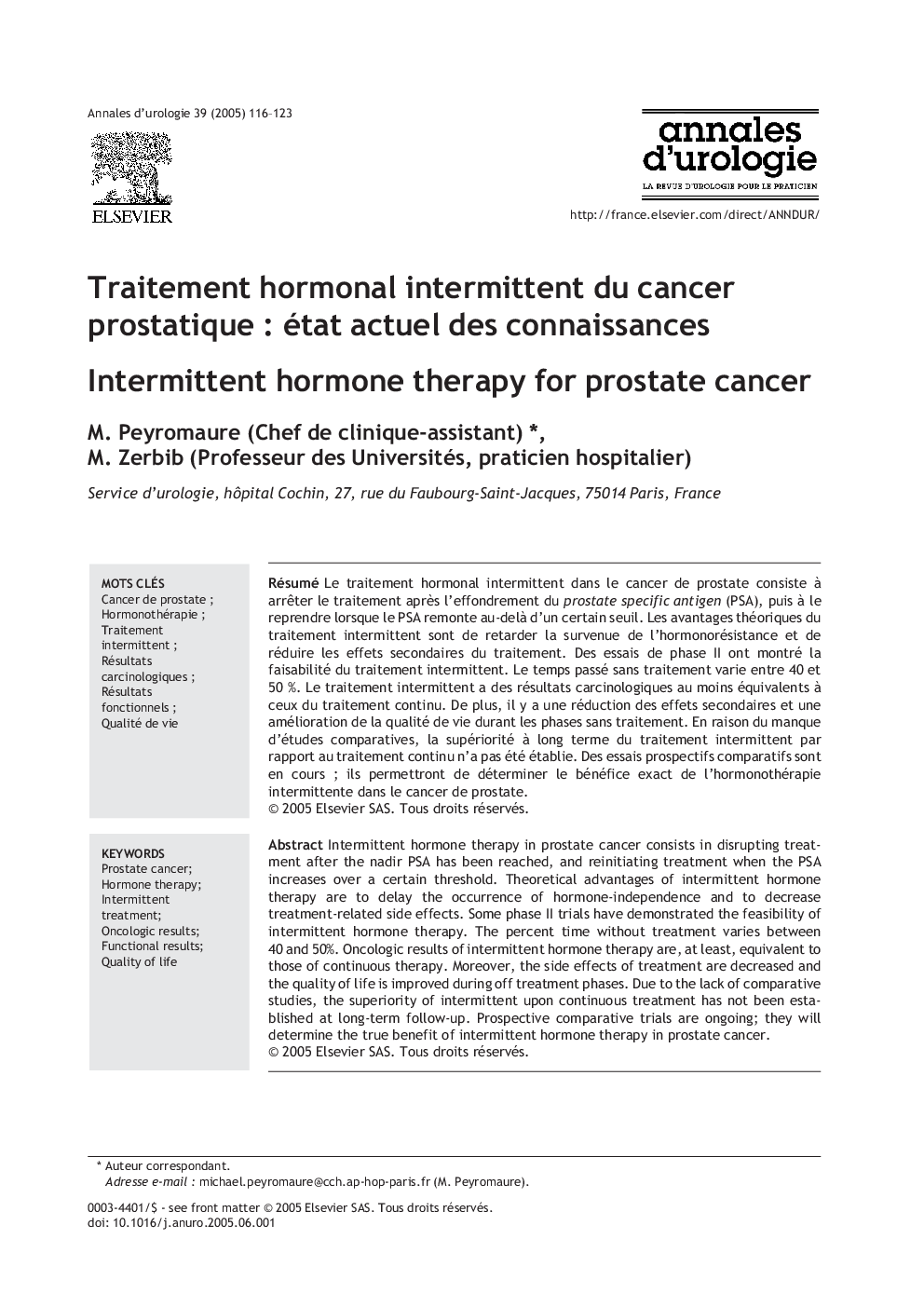| Article ID | Journal | Published Year | Pages | File Type |
|---|---|---|---|---|
| 10100323 | Annales d'Urologie | 2005 | 8 Pages |
Abstract
Intermittent hormone therapy in prostate cancer consists in disrupting treatment after the nadir PSA has been reached, and reinitiating treatment when the PSA increases over a certain threshold. Theoretical advantages of intermittent hormone therapy are to delay the occurrence of hormone-independence and to decrease treatment-related side effects. Some phase II trials have demonstrated the feasibility of intermittent hormone therapy. The percent time without treatment varies between 40 and 50%. Oncologic results of intermittent hormone therapy are, at least, equivalent to those of continuous therapy. Moreover, the side effects of treatment are decreased and the quality of life is improved during off treatment phases. Due to the lack of comparative studies, the superiority of intermittent upon continuous treatment has not been established at long-term follow-up. Prospective comparative trials are ongoing; they will determine the true benefit of intermittent hormone therapy in prostate cancer.
Keywords
Related Topics
Health Sciences
Medicine and Dentistry
Urology
Authors
M. (Chef de clinique-assistant), M. (Professeur des Universités, praticien hospitalier),
